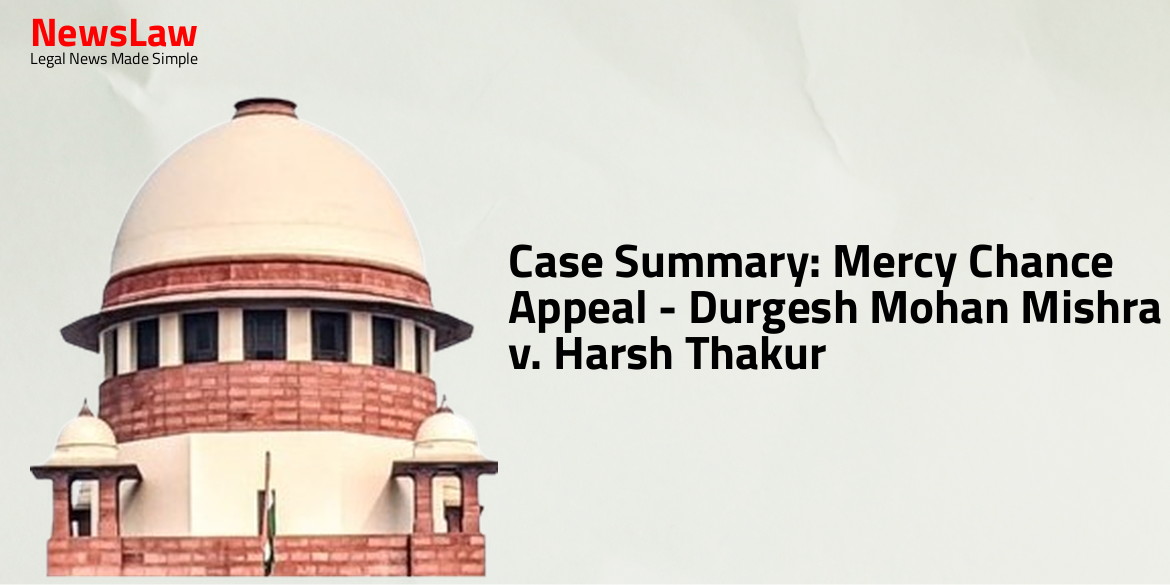In a recent legal case, the Court delved into the intricate analysis of interpreting mandatory statutory time limits. The case focused on the nuances of statutory interpretation and the Court’s scrutiny of whether time limits provided in the law should be considered mandatory or directory. This blog highlights the significant legal analysis conducted by the Court in this case.
Facts
- The challenge in the appeal is against the order of the Kerala High Court dated 19.7.2019.
- The High Court held that Section 14 of the SARFAESI Act, requiring the District Magistrate to deliver possession of a secured asset within 30 days (extendable to 60 days with reasons recorded), is directory in nature.
Also Read: Legal Analysis on Scheduled Castes and Scheduled Tribes (Prevention of Atrocities) Act
Arguments
- The time limit provided in Section 14 of the Act is unambiguous and mandatory.
- The District Magistrate must pass an order within 30 days as ‘shall’ is used in the first part of the proviso.
- If the District Magistrate fails to pass the order within 30 days, reasons must be recorded to avail an extended period of 60 days.
- Mr. Khan argues that the mandatory nature of the provision is evidenced by the requirement to record reasons for the delay in order to get an extension.
Also Read: C.A. No.-003966-003966 / 2020
Analysis
- The Full Bench of Patna High Court in Shiveshwar Prasad Sinha examined the provisions of the Bihar Buildings (Lease, Rent and Eviction) Control Act, 1947.
- A Single Bench of Madhya Pradesh High Court analyzed Section 14 of the Act as amended.
- The Constitution Bench emphasized that the provisions of a statute related to a public duty should be considered directory if serious inconvenience or injustice would result from holding acts done in neglect of this duty as null and void.
- A Seven Bench judgment discussed whether the power of the Returning Officer to reject ballot papers is mandatory or directory.
- The High Court held that the time limit provided in the Act before the accused is called for trial must be given for adequate preparation of the defense.
- It was held in the case of Harshad Govardhan Sondagar that the remedy against a decision of Chief Metropolitan Magistrate or District Magistrate lies before the High Court.
- The High Court should be cautious in granting stays in matters involving the economy of the nation.
- The Act enacted in 2002 aimed to empower banks for recovery of dues.
- It was observed that the word ‘shall’ in a statute does not always imply mandatory action, and the intention of the legislature should be understood in the context of the entire statute.
- The High Court decision examined the provisions of the Act in the context of public duties and the consequences of non-compliance by public authorities.
- Section 15 of the Act allows for the takeover of a specified entity.
- Section 13(4) must be understood in conjunction with Sections 14 and 15.
- The Act was enacted to empower banks and financial institutions to take possession of secured assets for public dues recovery.
- The purpose of the Act is to provide a machinery for secured asset recovery.
- Section 14 allows for the possession of assets by Chief Metropolitan Magistrate or District Magistrate.
- The Act is not to be interpreted literally but in consideration of its object and purpose.
- The time limit in Section 14 is to ensure prompt action by the District Magistrate.
- Amendments in the Act aim to streamline possession delivery of secured assets.
- The inability to meet the time limit does not make the District Magistrate Functus Officio.
- The High Court order is found to be error-free.
- High Courts should be cautious when passing interim orders if alternative remedies are available.
- Interim orders should not be passed without hearing the secured creditor.
- Interim orders can hinder the expeditious recovery of public money.
Also Read: Legal Analysis on Company’s Non-Conviction and Re-Trial Order
Decision
- The appeal was dismissed.
Case Title: C. BRIGHT Vs. THE DISTRICT COLLECTOR (2020 INSC 633)
Case Number: C.A. No.-003441-003441 / 2020



